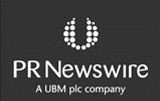The big appeal behind Jessica Alba’s Honest Company–besides the celebrity factor, if that dazzles you–is the simplicity it promises. The transparent bottles clearly label the good stuff that’s in the product and the bad stuff that isn’t. On its website, the company offers its “honestly free guarantee“: “Providing clear, credible, transparent information. No smoke and mirrors. No confusion.”
The problem is, confusion now abounds in terms of what Honest Company really puts into its products. A Wall Street Journal investigation last week found that Honest’s laundry detergent contains sodium lauryl sulfate (SLS), a chemical common in mainstream soaps that Honest promised never to use. Then on Tuesday, the Journal reported that Honest’s manufacturer no longer claims its products are free of SLS.
So far, the company’s responses have done little to clarify the issue. Instead, they raise more questions than they answer.
Honest’s main argument against the Journal‘s report is that its detergent actually contains sodium coco sulfate (SCS), which Alba describes in a blog post as a “gentler and less irritating alternative” to SLS and that the independent labs the Journal used tested for SLS and not SCS. Janet Blaschke, chief executive of International Cosmetics and Regulatory Specialists LLC and one of Honest’s scientific advisers, told the Journal that the two chemicals are distinct and that “sodium lauryl sulfate is refined in a way that sodium coco sulfate isn’t.” Honest even went so far as to publish another blog post offering a chemistry lesson designed to “dispel the myth that [SLS] and [SCS] are the same.”
So what’s the truth? Is this really a gray area?
It doesn’t appear to be. The Journal says it spoke to more than a dozen scientists, all of whom confirmed that “SCS is a mixture of cleaning agents that includes a significant amount of SLS.”
“The chemicals overlap … there’s nothing controversial in the chemistry community about this,” Preston MacDougall, a chemistry professor at Middle Tennessee State University and member of the American Chemical Society told Inc. “[Honest was] being disingenuous when they said that ‘the molecular make-up of SLS and SCS is quite different.’ ” MacDougall characterized Honest’s conclusions about the chemicals as “intentionally confusing” and he isn’t the only one.
Josh Bloom, the director of chemical and pharmaceutical sciences of the nonprofit American Council on Science and Health, wrote a decidedly over-the-top analysis of the Honest controversy but nonetheless confirms those conclusions about the chemistry. He points out that Honest is correct in saying it doesn’t make its products with sodium lauryl sulfate–that’s because “it’s already in there, and plenty of it,” he writes in a blog post. “There is nothing natural about SLS, SCS, or any other sulfate detergent–no matter how you manufacture it.”
The SCS in Honest’s detergent comes from India-based manufacturer called Galaxy Surfactants, which told the Journal that it is standard in the industry for SCS to be made from vegetable oils, such as coconut oil, and that SLS is one component of SCS.
In response to a request for comment for this story, Honest sent the following statement:
The Journal confirms what we have said all along, that we use Sodium Coco Sulfate (SCS) in our laundry detergent. And, to reiterate our position, just because you can isolate the C-12 carbon chain in a test for SCS does not mean we use SLS in our product. We use SCS because it is a gentler alternative that is less irritating and safer to use. We stand behind our laundry detergent and take very seriously the responsibility we have to our consumers to create safe and effective products.
One thing is clear about Honest’s strategy: It’s not working very well. Angry consumers have already starting affixing the hashtag #dishonest in tweets about the company and the Journal‘s reports.
I guess @Honest Company will have to change its name to #Dishonest. Disgraceful and disappointing. https://t.co/HaBsALgZxM
-; Kelda Helen Roys (@keldahelenroys)
Readers of the Honest company blog are clearly unsatisfied with the corporate explanation so far:
The Honest Company has, admirably, established a very high standard for itself–the company name leaves little room for anything else. The thing of it is that, consumers want to hold it to that standard. After all, they bought Honest products because they didn’t want the “smoke and mirrors.”
For some perspective on how high-profile companies should respond in such situations, I reached out to Matthew Hiltzik, founder of the communications and consulting firm Hiltzik Strategies. (Hiltzik has represented, among many others, Bob and Harvey Weinstein of Miramax and the Weinstein Companies and Alec Baldwin.)
“There is always a question whether you’re better off with a blanket acknowledgment or apology and a commitment to correct the problem versus trying to explain it away. Even if the explanation is perfectly valid, people may view it as an excuse,” Hiltzik says.
But Honest has offered neither an acknowledgment nor an apology. What it’s given instead is a complex chemistry lesson–and one that’s been criticized soundly by many in the scientific community.
What’s the next act in this drama? Dale Giali, a partner with Mayer Brown who has defended multinational corporations in consumer product litigation cases, says he fully expects to see more class action lawsuits brought against Honest fueled by the Journal‘s investigation. (Two existing suits have been filed against the company alleging false advertising, but neither mention any SLS-related issues.)
“There is no question that Honest Company will point the finger at suppliers and say that they relied on certifications and validations from suppliers and they will likely make a formal claim against them,” Giali says.
It would likely take more than a year for any class-action legal proceedings to play out. With evidence mounting that its detergent contains an ingredient the company has banned, Honest needs to acknowledge its missteps–even if it’s to say there was a misunderstanding with suppliers–or the confusion will continue. Until then, the company must deal with the court of public opinion, where it’s not doing a very good job of playing to the jury.
Source: www.inc.com




